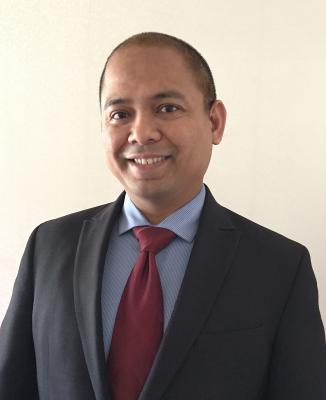Ed. note: This post is part of the Spotlight on Commerce series highlighting the contributions of current and past members of the Department of Commerce during Asian-American and Pacific Islander (AAPI) Heritage Month.
Guest blog post by Melvin Tabilas Legislative and Intergovernmental Affairs Specialist, Minority Business Development Agency (MBDA)
As a Legislative and Intergovernmental Affairs Specialist for the Minority Business Development Agency (MBDA) at the U.S. Department of Commerce, I serve as a liaison with Congress, federal agencies, state and local government, and other stakeholders.
I was born and raised on the island of Guam, a U.S. territory in the Pacific. I graduated from the University of Hawaii at Manoa with a Bachelor of Arts in Political Science and earned a Master of Public Policy from the University of California, Los Angeles School of Public Affairs.
Prior to arriving at the Department of Commerce, I served as a Senior Government Affairs Advisor for the National Coalition for Asian Pacific American Community Development (National CAPACD) where I led the organization’s policy advocacy strategies. While there, I also headed the housing and economic development advocacy strategies for the National Council of Asian Pacific Americans (NCAPA), a coalition of over 30 national Asian American and Pacific Islander organizations. I was also formerly a Legislative Assistant for Congressman Neil Abercrombie of Hawaii and also worked as a Field Deputy for Congressman Xavier Becerra of California and California State Senator Debra Bowen.
Having worked with local community organizations supporting underserved minority neighborhoods across the country over the years, I joined the MBDA family in 2016 with a clear understanding that business development is instrumental to the economic well-being of these communities. MBDA gives me an opportunity to continue serving underserved minority communities from the perspective of the federal government.
Minority businesses are American businesses. There are 8 million minority businesses contributing $1.4 trillion to the economy and providing over 7 million jobs across the country. With MBDA being the only federal agency exclusively dedicated to supporting minority businesses, I am part of a diverse team that ensures minority businesses have the access and support necessary to contribute to the nation’s economy. Further, as a Filipino American with ties to Guam and Hawaii, I bring a unique perspective in how to implement the mission of our agency in the Asia Pacific region and a personal stake in making sure government services reach underserved areas of the country.
Asian American Pacific Islander Heritage Month is an opportunity for me and others to recognize the achievements and contributions that AAPI communities continue to make in building an America for all. While AAPI invites all to celebrate our history and appreciate the diversity of our cultures, it is also a reminder that there is still more to do in and for our communities and that our varied experiences include struggles that must be acknowledged and addressed. To celebrate AAPI for me then is to define America within the context of my personal story and the experiences of my parents as immigrants in Guam.
In recognition of AAPI, MBDA and the National Asian/Pacific Islander American Chamber of Commerce and Entrepreneurship (National ACE) co-hosted a National AAPI Business Summit at the Department of Commerce earlier this month. As part of the planning committee, I was excited to see that we had more than 200 AAPI business owners, leaders and partners from across the country in attendance, highlighted by Congresswoman Judy Chu, Chair of the Congressional Asian Pacific American Caucus.
I believe that where you come from shapes who you are both personally and professionally. To the younger generation of AAPIs beginning their career in government service, my advice is to never forget where you come from. I’ve always believed that I will lose who I am the minute I stop acknowledging where I come from and where I’ve been. I’ve tried to live this mantra in two ways throughout my career. I try to find opportunities to share the knowledge I’ve learned, the access and resources that I have, and the contacts that I’ve developed to the communities I call my own. I also make it a point to use my experiences to color my perspectives in how I accomplish my tasks and achieve my work goals in any role that I’m in. I’ve always said that if my communities don’t take advantage of me in my role or if I don’t take advantage of my role in serving my communities, it’s a wasted opportunity for both of us. I hope that by never forgetting where I come from, this doesn’t happen.
My father always said, “You need to know someone’s family in order to truly know them as a person.” While he meant this to explain how he thinks I should look at and come to understand other people, it actually gave me a perspective on how I should see myself. Having this ingrained in my head as a child led me to strive to always make my family proud in all that I did and continue to do because it never was just about me. Over the years, I learned to always be part of something bigger than myself. “Family” for me then has grown to mean not just my family, but my neighborhood and the communities I serve and represent.


